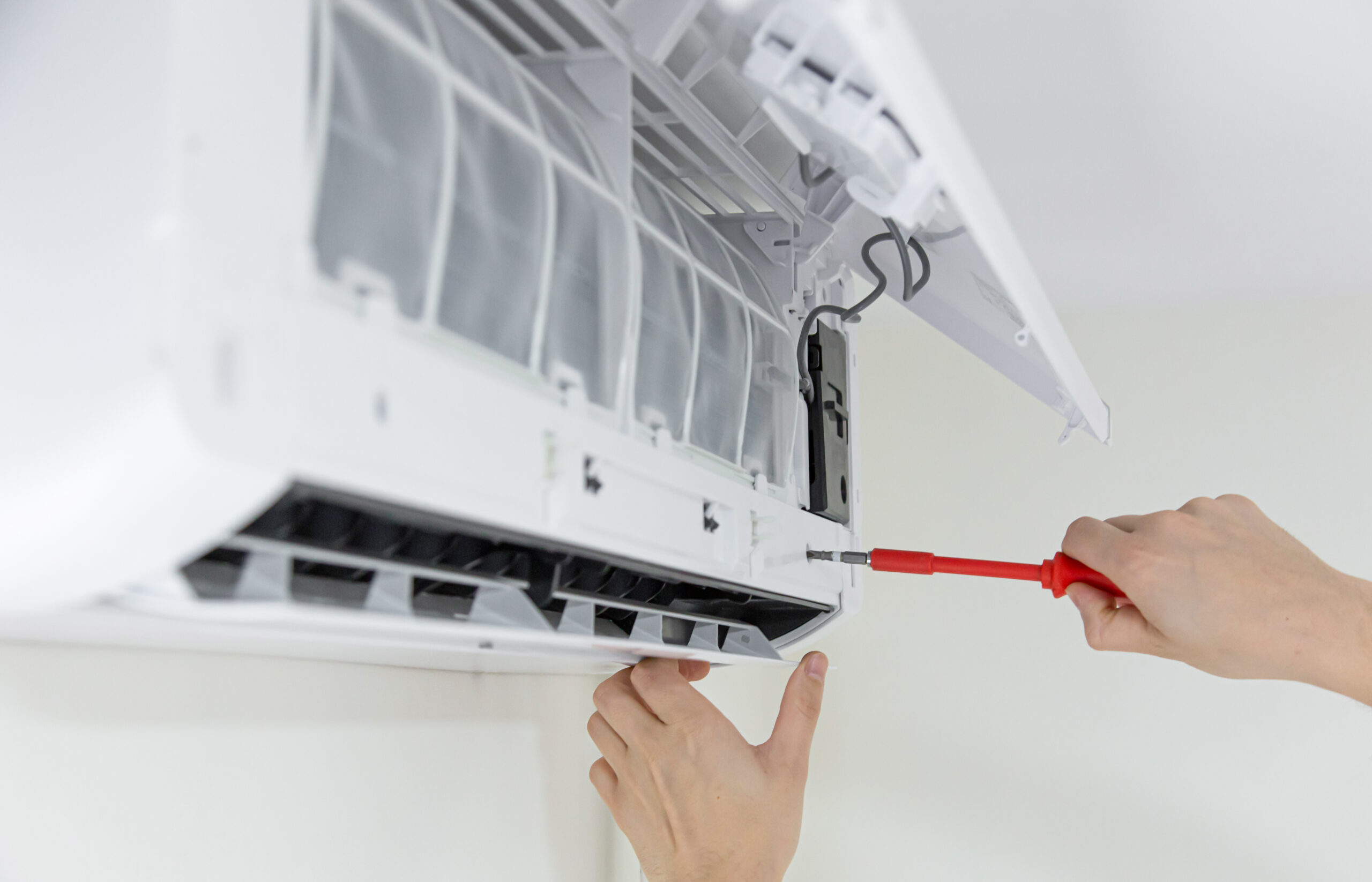
Male technician cleaning air conditioner indoors. technician service cleaning the conditioner
Cold winters are much more bearable when you have a reliable heater for your home. If your heater is malfunctioning, it can quickly make for a miserable day. Ultimately, it’s important to have a trusted HVAC company on speed dial so that they can come and help you with any major problems. Fortunately, there are some easy repairs you can do yourself when your heater isn’t keeping things as warm as you’d like.
Replace Your Air Filter
Many common heater problems can be fixed simply by replacing the air filter. An exceptionally dirty air filter can put a lot of stress on the blower fan and heat exchanger in your heater. In some cases, your heater may overheat, shutting itself down in the process. In general, you should try to check your air filter at least once a month to make sure it’s not choked with dust. If you’re tired of buying air filters, you can purchase a washable air filter that you can use for several years.
Check Your Thermostat
Sometimes, when you’re heater isn’t working, there’s not actually a problem with the heater. Instead, there’s a problem with your thermostat. If your thermostat malfunctions, your heater won’t receive a signal to initiate the heating cycle, leaving you with a cold house. When homeowners call for residential heater repair, one of the first things the technician will check is the batteries in the thermostat. Save yourself the trouble and check yourself to make sure that there are fresh batteries in your thermostat and that the thermostat is sensing the temperature correctly.
Light the Pilot Light
If you have a gas heater in your home, there’s a possibility that the pilot light may not be working properly. The pilot light is a small flame that ignites the gas in the burners when the thermostat calls for heat. If there are small variations in the gas supply to your home, the pilot light may go out. By carefully following the manufacturer’s instructions for your heater, you can re-light the pilot light and restore comfort to your home.
Consider the Heater’s Age
In general, most residential heaters last between 15 and 20 years. If your heater is older than that and you’re experiencing problems, it may be time for a new heater. All furnaces have a date code printed on the front so that you can easily establish the age of your furnace. Once you know the age, you can better understand whether or not other repair efforts will be fruitful.
Use Caution
When working with any type of HVAC equipment, it’s important to use caution. Don’t try to be a home-repair hero by working on components of your system that need to be taken care of by a qualified HVAC technician. If you try to go too far, you could end up doing serious damage that could be expensive to repair. Instead, stick with what you know, and trust the professionals for the rest.


